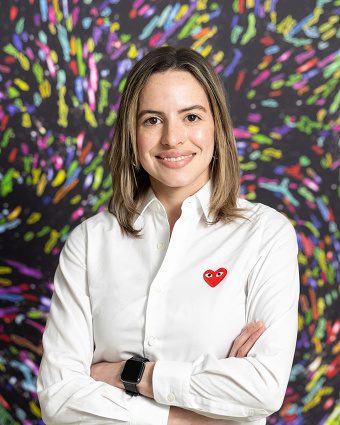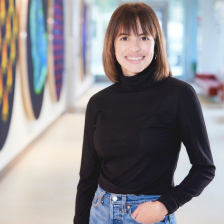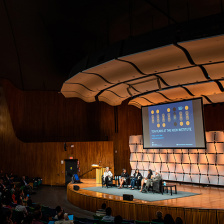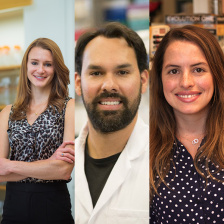
Howard S. (1953) and Linda B. Stern Career Development Professor
Assistant Professor of Biology
Contact Information
Soto-Feliciano Lab
Research Areas
Precision medicine
Our laboratory is studying the molecular functions of the DNA-histone complex called chromatin and its dysregulation in cancer. By combining approaches in genetics, biochemistry and mouse models, we aim to dissect how alterations in chromatin and epigenetic factors endow cancer cells with the ability to rewire gene expression programs to quickly adapt to cell-intrinsic and extrinsic changes.
Research Summary
Chromatin - the physiological form of our genomes - is composed of DNA and histone proteins. Post-translational modifications of these building-blocks, and the factors that regulate these events, play essential roles in maintaining the integrity of cells, tissues, and ultimately whole organisms. Large-scale sequencing efforts have uncovered that chromatin and epigenetic regulators are broadly altered in human diseases, such as cancer. How these factors work and how they contribute to cancer are important questions that remain unanswered.
The long-term goal of the Soto-Feliciano lab is to dissect how chromatin and epigenetic factors help decode the chemical language of our epigenomes, their context-specific effects, and how they regulate gene expression in normal physiology and disease. Current interest in the lab include: (1) Determining how chromatin and epigenetic factors achieve locus-specific targeting and regulation; (2) understanding how these factors elicit critical context-specific functions in gene expression and cancer; and (3) dissecting the biological impact of cancer-associated mutations on chromatin and epigenetic factors on gene expression; and 4) leveraging these insights for therapeutic benefit of cancer patients.
With these studies, we seek to improve our basic understanding of how protein complexes assemble on chromatin in a concerted and regulated manner, ultimately giving insight into the etiology of cancer and other human diseases and paving the way for therapeutic approaches that revert chromatin and epigenetic dysregulation.
Biography
Yadira Soto-Feliciano earned a BS in Chemistry from the University of Puerto Rico at Mayagüez in 2008 and a PhD in Biology from MIT in 2016. She conducted her doctoral work in the laboratory of Prof. Michael T. Hemann at the Koch Institute/MIT, where she combined mouse models of leukemia with in vivo functional genomics approaches to study mechanisms of cell identity and lineage plasticity. These studies, along with mounting evidence pointing to epigenetic alterations as a central mechanism behind human diseases like cancer, led her to pursue formal postdoctoral training in chromatin biology and epigenetic mechanisms. Prof. Soto-Feliciano completed her postdoctoral training at the Rockefeller University in the laboratory of Dr. David Allis in 2021. During this period, she was supported by a Damon Runyon-Sohn Pediatric Cancer Fellowship and subsequently received an NIH/NIGMS K99/R00 award. Her postdoctoral work combined cancer biology and functional genomics with traditional chromatin biology and biochemistry, to understand the role of chromatin adaptor/scaffold proteins in cancer. She joined the MIT faculty in 2022 as an assistant professor in the Department of Biology and a member of the Koch Institute; she is also the Howard S. (1953) and Linda B. Stern Career Development Professor. Prof. Soto-Feliciano is the recipient of the 2022 V Foundation Award and the 2023 AACR Gertrude B. Elion Cancer Research Award. She is a scientific advisor for Scaffold Therapeutics.


